Dust Off That Trumpet
and Join Santa Barbara’s
Prime Time Band
Ensemble of Older Adults Reignites Old Passions,
Keeps Minds and Fingers Nimble
By Tyler Hayden | August 24, 2023
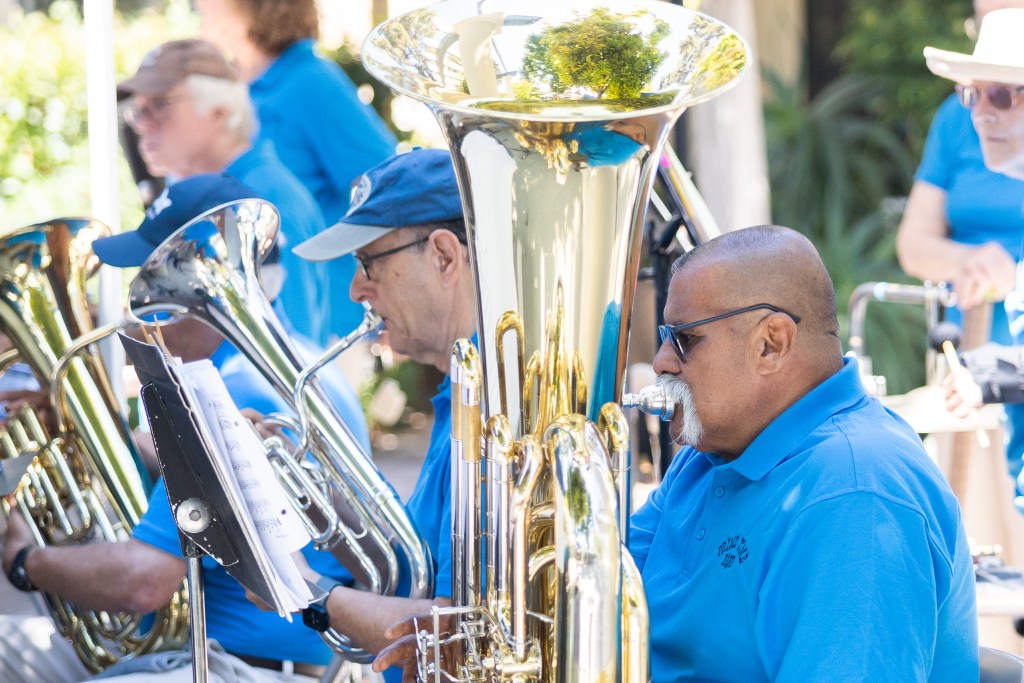
Find the rest of our 2023 Active Aging Guide here.
It had been 40 years since Barb Nagle Statler touched a trombone. She started playing in 5th grade — it was the only instrument her orthodontist would approve — and nurtured a budding love of music through high school.
After successfully auditioning by audio tape, Statler was all set to join a university marching band, but when the Midwest college discovered she was female, it rescinded the invitation. That took the wind out of her sails. She quit soon after.
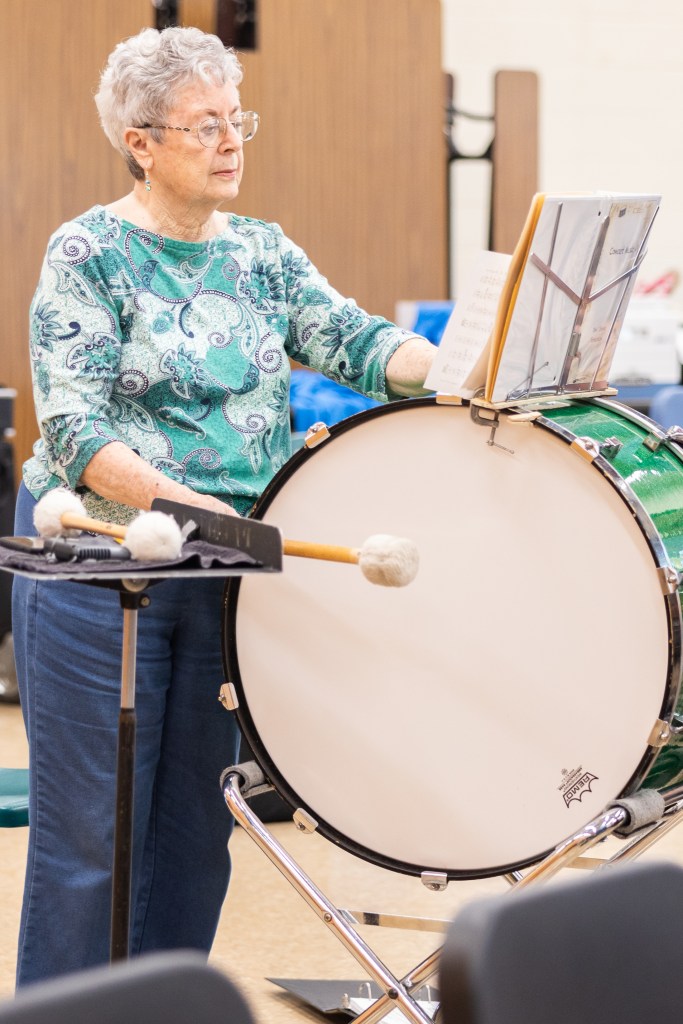
Fast-forward to 2015 and a friend rented Statler a trombone for her birthday. With a little encouragement, she sat for a rehearsal of Santa Barbara’s Prime Time Band, a lively group of five dozen older musicians who put on free shows around town. Many of its members had also not played since high school, or they had picked up an instrument for the first time in their golden years.
Statler’s dormant passion was quickly and “wonderfully resurrected,” she said. “It was such fun. I’d forgotten the joy of making music with an ensemble, and just how rich that is for the soul.” And the timing, she said, was “providential.” Statler’s career in consumer market research was winding down and she was looking for a new way to reinvest her energy. “It certainly helped ease the transition to retirement,” she said.
Part of the New Horizons International Music Association, the Prime Time Band formed in 1995 under the leadership of longtime La Colina Junior High School teacher Van Vander Ark and with support from Nick Rail Music. The venerable music store still rents instruments to new members, and some of Vander Ark’s former students are now among the ensemble.
A classic concert band comprising brass, woodwind, and percussion instruments, the group — whose members range in age from 40 to 90, with most toward the upper echelon — practices every Tuesday evening and performs three main concerts a year. Their July 4 show last month at the Sunken Gardens drew more than 2,000 attendees. They also play at the Stow House, for civic events and retirement communities, and aboard a trolley in parades.
Statler said the time commitment to the band depends on the player, with some practicing diligently every day and others treating their weekly rehearsals more like bowling night. Regardless, the camaraderie among them is incredibly strong, she said, with director Paul Mori lending his energy and expertise to all their efforts. “Paul is such an inspiring director,” Statler said. “Our level of performance has improved under him as well as our zeal and excitement to try more challenging pieces.”
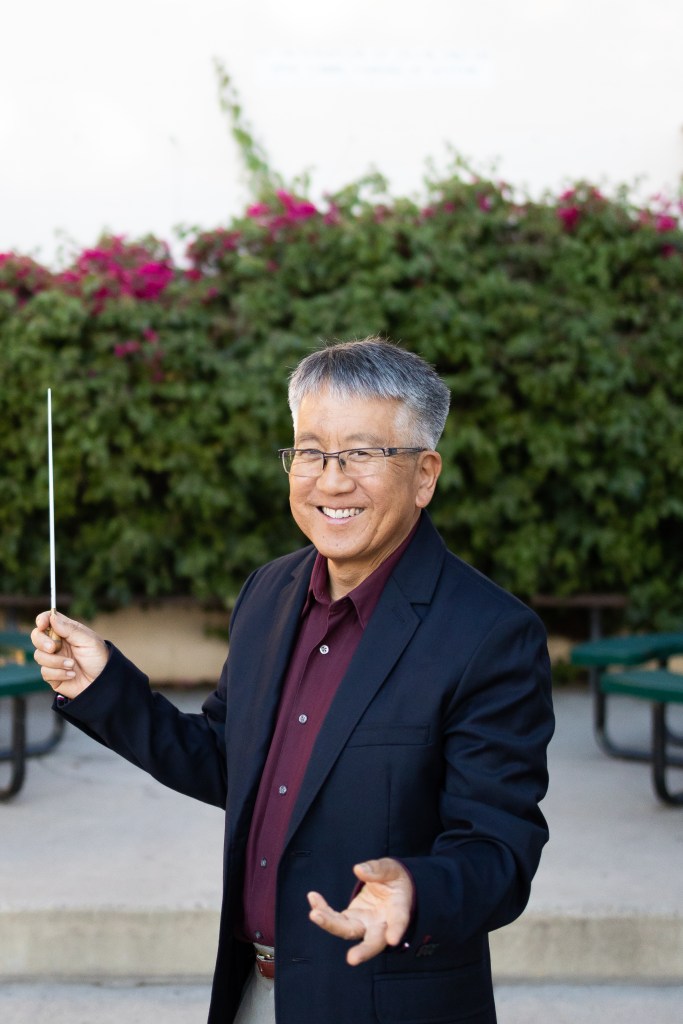
Mori, a native Santa Barbaran and bassoonist who teaches at Westmont College, said playing in the Prime Time Band not only offers its older members a venue to connect and socialize but also an opportunity to exercise their brain muscles in very specific and very valuable ways. As a graduate of the Peabody Institute — a conservatory under the umbrella of Johns Hopkins University and its medical school — Mori is intimately familiar with the neural benefits of making music. “It’s good in so many ways,” he said.
Studies have shown that playing an instrument improves memory and cognition, Mori explained, and has a net positive effect on a person’s mental health, regardless of their ability level. Active participation in music, as opposed to simply listening to it, also counteracts hearing difficulties by keeping ears young, he said. As well, Mori pointed to research on how music can stimulate memories for Alzheimer’s and dementia patients, and how its rhythmic cues help retrain the brain after a stroke.
Mori has manned the Prime Time podium for just two years, but even in that short amount of time, he’s seen the band impact lives — the former aerospace industry executive who took trumpet lessons during COVID and is now an unstoppable force in the ensemble; the retired veterinarian who played on the same Music Academy of the West stage where he’d seen and admired the pros perform; the widower who was drinking himself into a grave until he joined the group and found a new reason to go on.
“These are people who are in a season of their lives where death is not a stranger,” said Mori. “But they’re not ready to give up. They want to breathe as much life into their time as they can.” It’s been a humbling and inspiring experience for Mori, who has spent much of his career working with young people. “This is healthy for me too,” he said. He chooses their set lists from music “that both brings back people’s younger lives but also adds some novel things,” Mori explained, meaning audiences may hear anything from Glenn Miller to American classics to ’80s flashbacks. Mori took the baton in 2020 from longtime director Jeff Peterson, who led the band for 15 years and helped build it into the successful program it is today.
It was a chance encounter last year between Mori and Sky Bergman, a photographer and filmmaker based in San Luis Obispo, that kickstarted a new documentary project about the Prime Time Band. Bergman had just screened her latest film at the Santa Barbara International Film Festival (SBIFF) about the Japanese tradition of preparing mochi to celebrate the New Year when she met Mori, who was in the audience and had made mochi as a boy. Bergman, it turned out, had played bassoon as a girl.
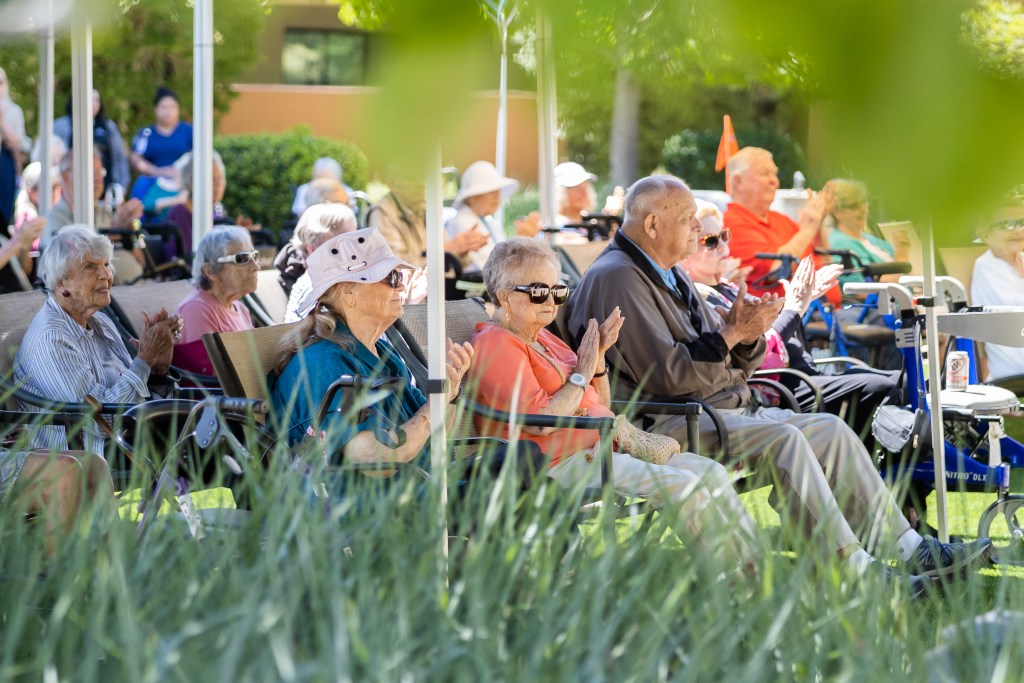
Bergman had also previously made a documentary called Lives Well Lived about the wit and wisdom of adults 75 to 100 years old. She interviewed 40 people with more than 3,000 combined years of lived experience, and the film aired on PBS to great success. “In our society, we don’t pay enough attention to older adults,” said Bergman, who grew up in a four-generation household and was especially close with her grandmother.
Bergman was immediately drawn to the Prime Time ensemble and wanted to learn more about its members. “The serendipity of it was just amazing,” she said. She’s still conducting interviews and plans on speaking with a neuroscientist who can further illuminate the far-reaching impacts of music on the aging brain. Bergman hopes to have the film completed in the next year. Ideally, she said, it will premiere at an upcoming SBIFF.
“What fascinates me is the idea of individuals rediscovering or embarking on their musical journeys later in life, and the profound sense of purpose it brings them,” Bergman said. “Through this film, I hope to showcase the beauty of individuals from various walks of life, united by their shared passion for creating harmonious melodies and playing together.”
The Prime Time Band’s next performance takes place Sunday, September 10, at 2 p.m. at the Stow House in Goleta. Like all of their shows, it is free. See ptband.org for more information on the band and how to join.
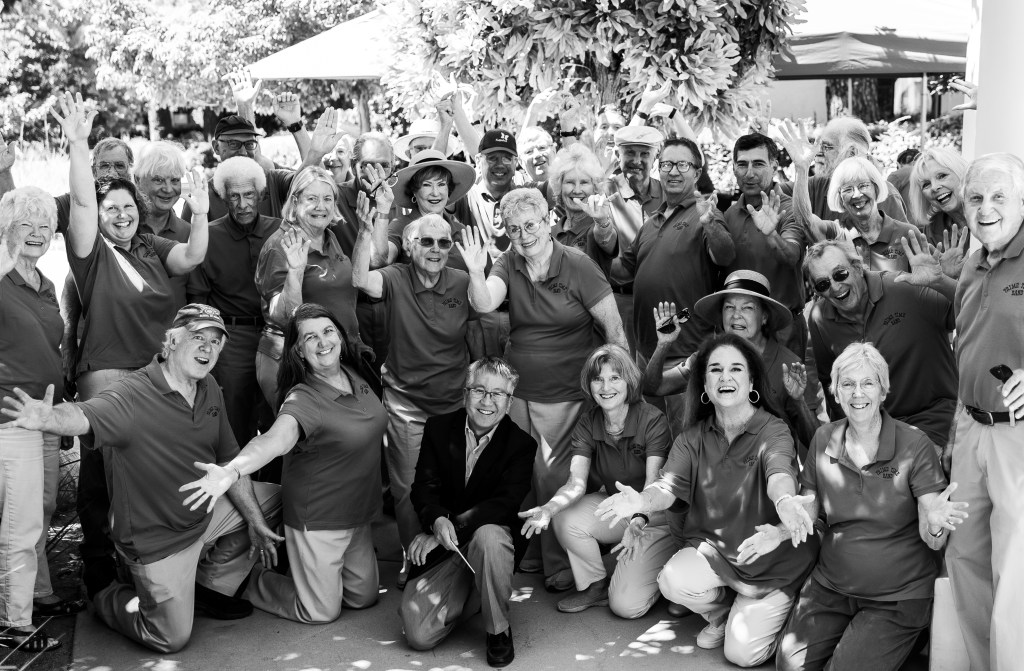




You must be logged in to post a comment.